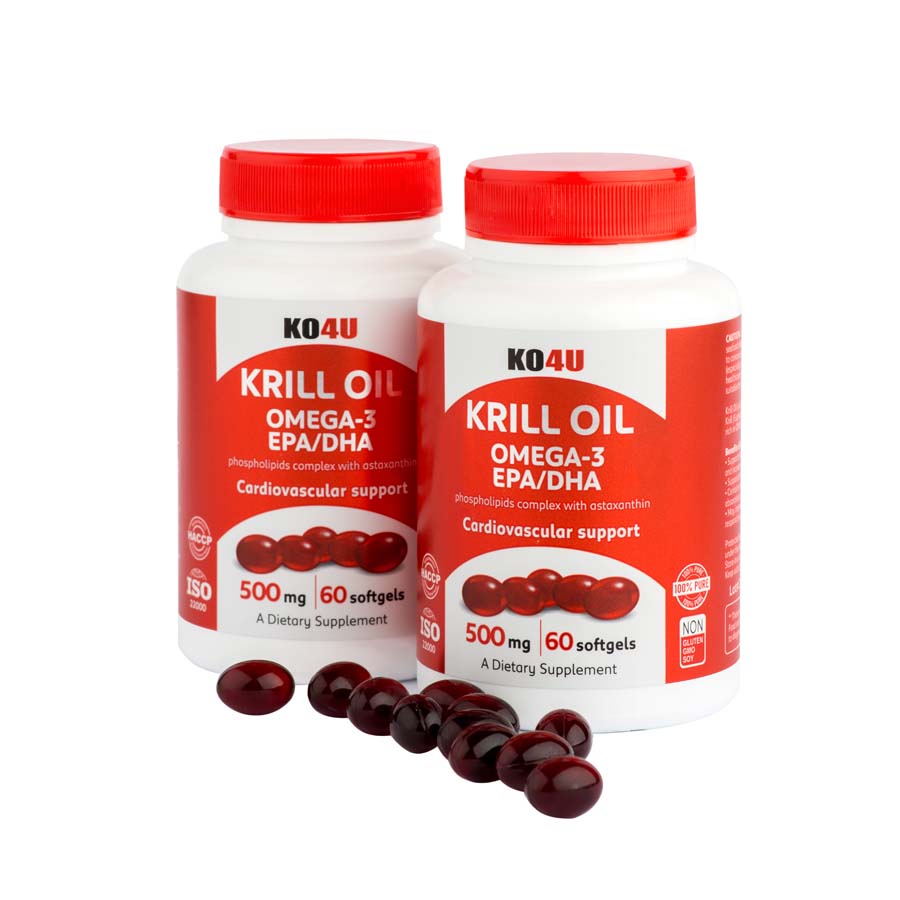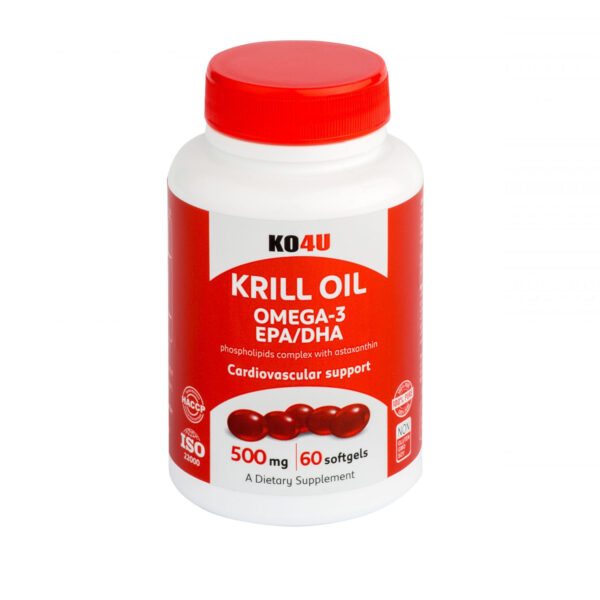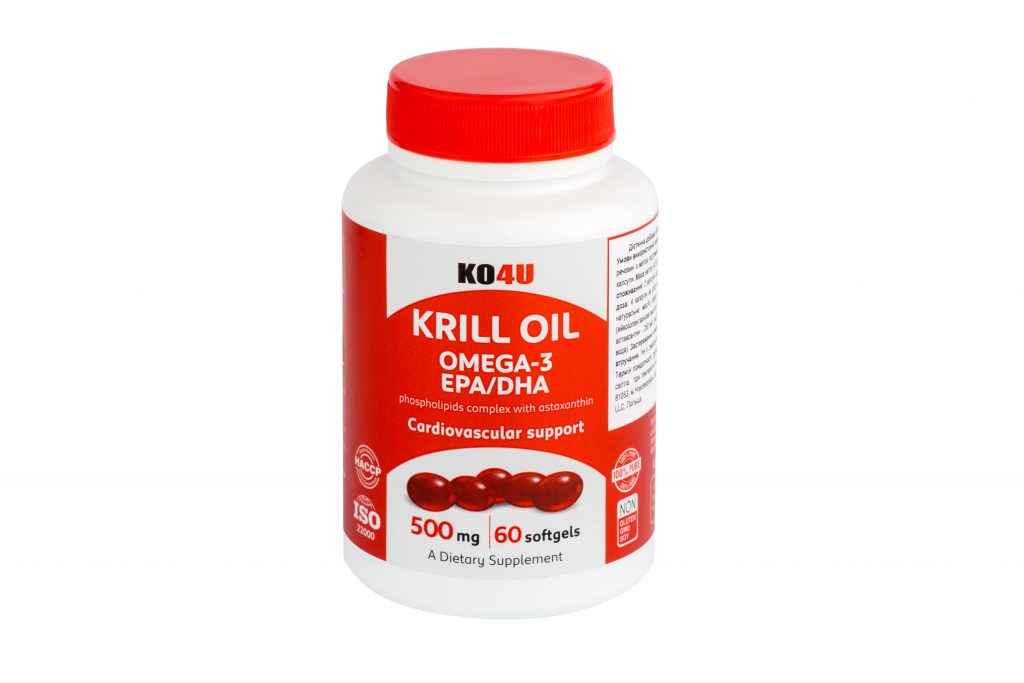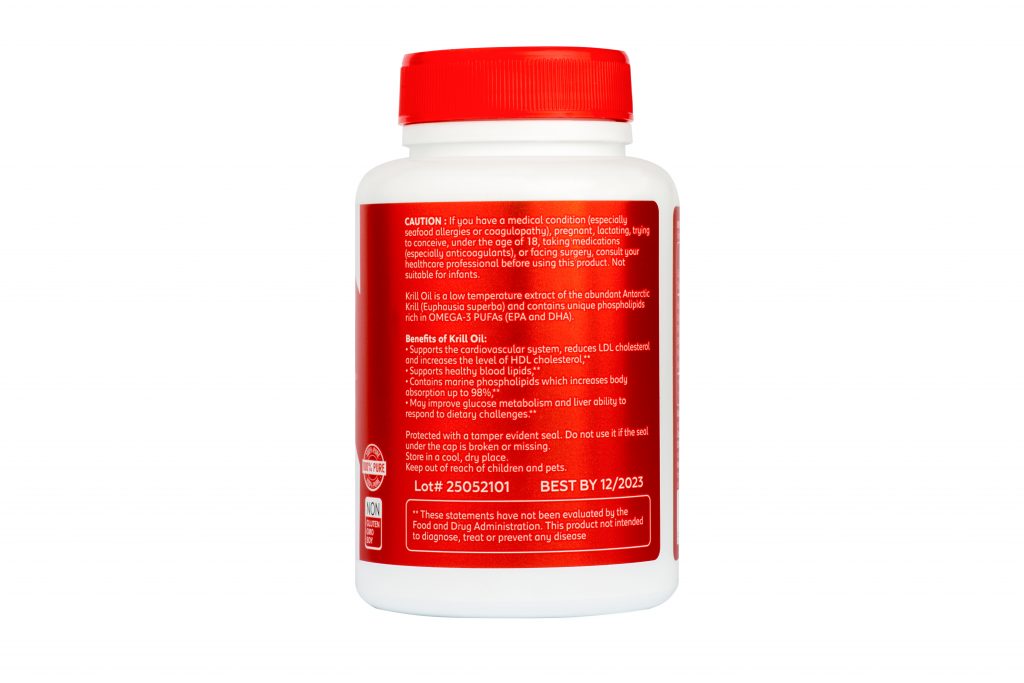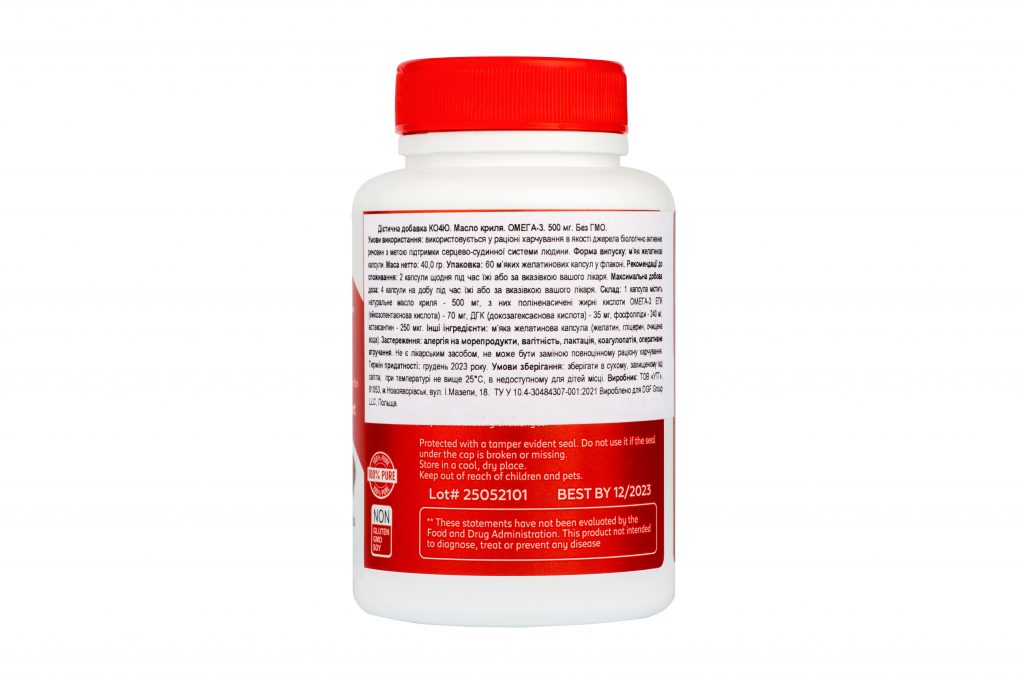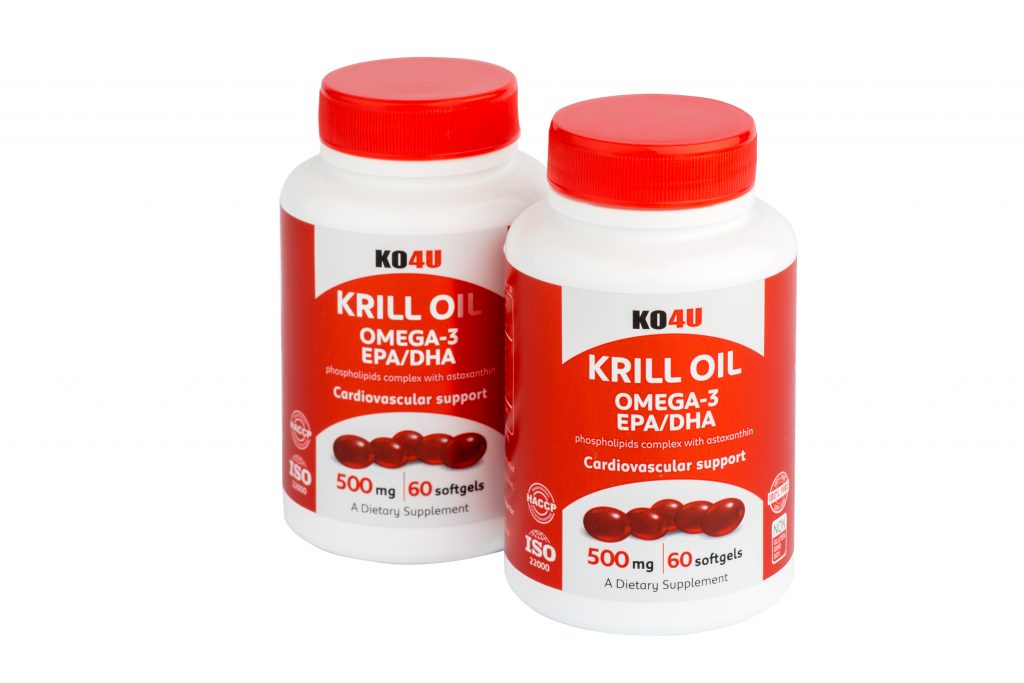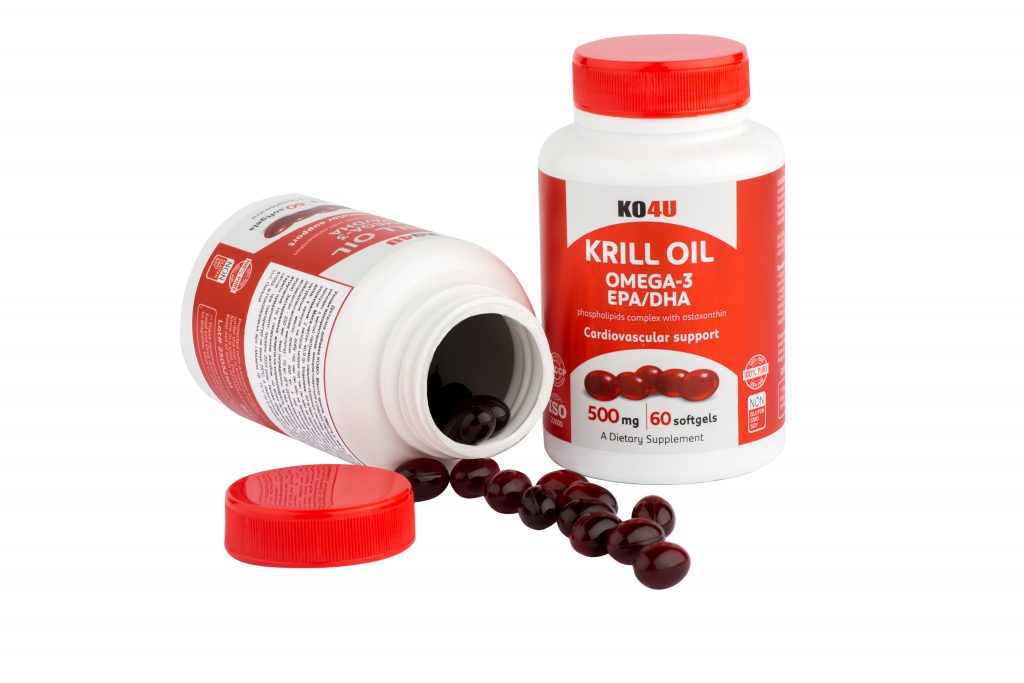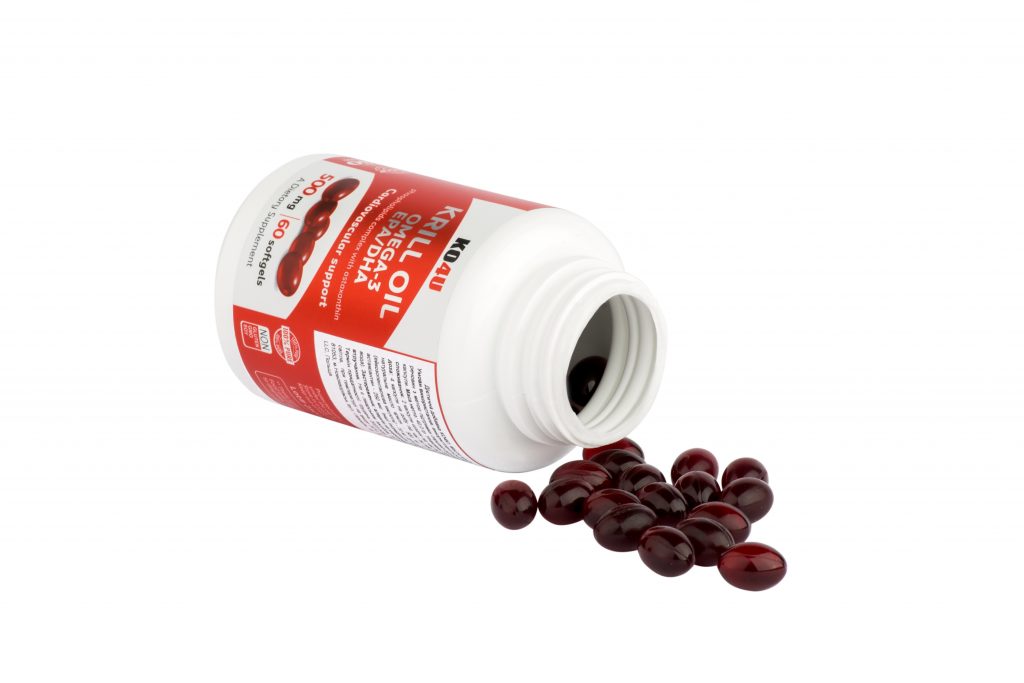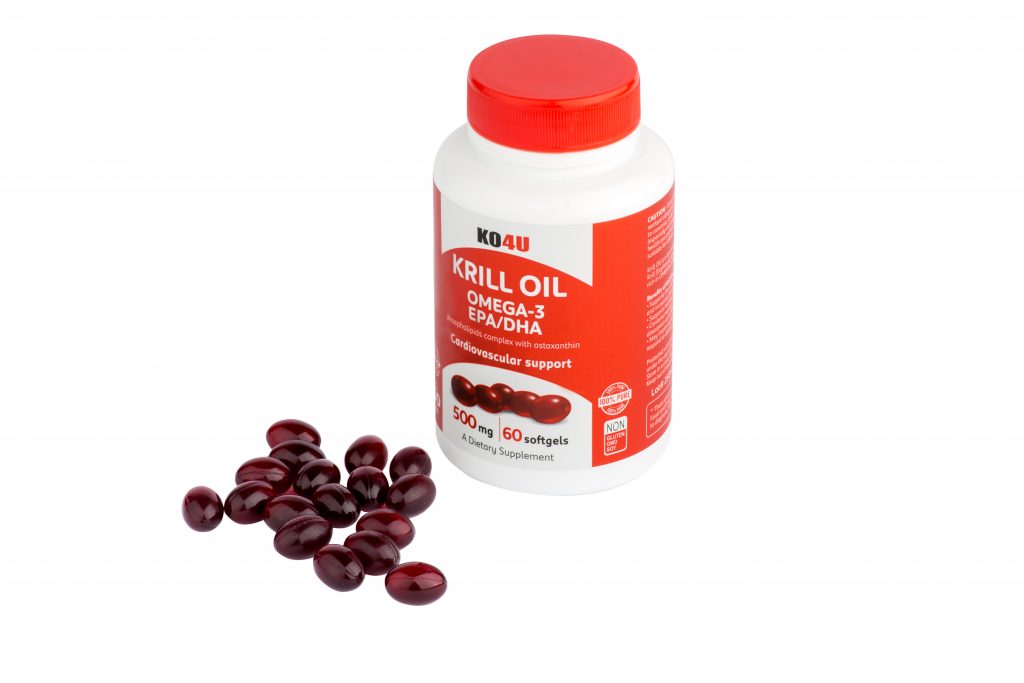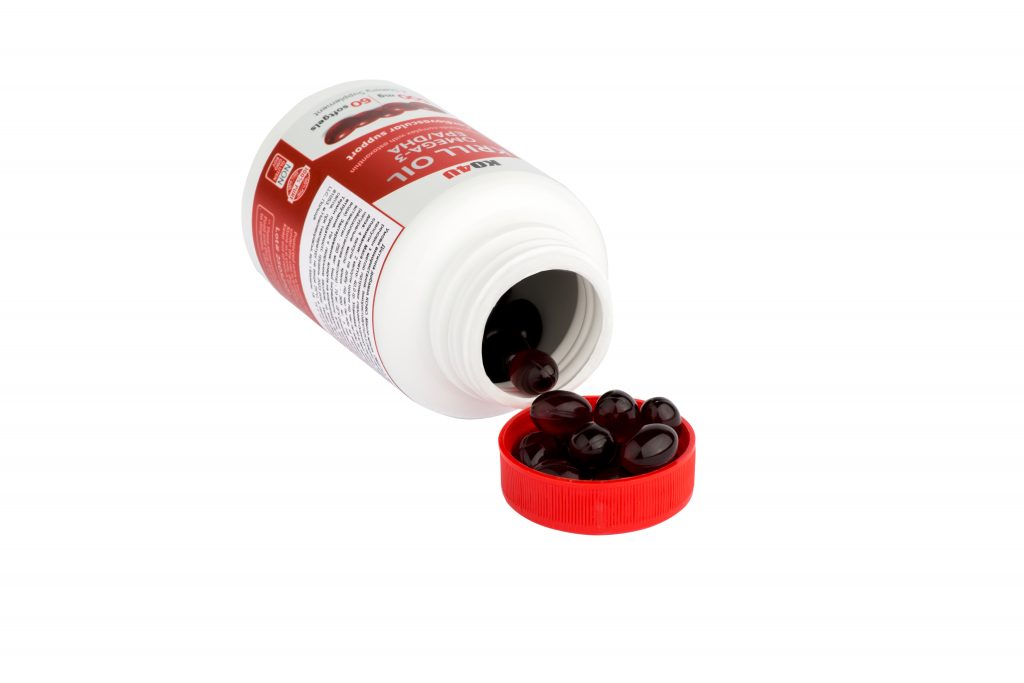Krill oil is traditionally well known for its properties for heart health, but recent research suggests that it has many benefits beyond heart health. In fact, since krill oil is a natural phospholipid complex of Omega-3 and choline, it acts rather as a multifunctional supplement.
In fact, the Omega-3 phospholipids and choline in krill oil are important for brain, joint and liver health, and even have beneficial effects on skin hydration and muscle activation during exercise!
4 key nutrients are critical
The many benefits of krill oil as a marine phospholipid complex stem from its health-promoting nutrients: Omega-3 (EPA and DHA), phospholipids, choline, and astaxanthin.
— Omega-3 polyunsaturated fatty acids (PUFA).
The most important of the whole complex of Omega-3 fatty acids are Docosahexaenoic acid (DHA), Eicosapentaenoic acid (EPA) and Alpha-linoleic acid (ALA). Omega-3 fatty acids are necessary to normalize the brain, cardiovascular system, improve muscle and joint function, and reduce inflammation of various etiologies. The KO4U krill oil fatty acid formula has a phospholipid component and is similar to the structure of a human cell, therefore, krill oil is recognizable for the human body and has a high bioavailability.
— Phospholipids
Omega-3 polyunsaturated fatty acids, as a result of complex biochemical reactions in the human body, are converted into phospholipids, which make up the membrane of each body cell. They are sometimes called “molecules of life” and help maintain the strength, flexibility and integrity of cells. The Omega-3 phospholipids EPA and DHA are known as essential fatty acids or “healthy fats”. They are also some of the most studied nutrients, making them important for health and wellness..
— Choline
Krill oil also naturally contains choline, an essential nutrient for overall health and healthy body function. Choline is actually a building block of the brain and helps support vital organs such as the heart, muscles, and liver. With the support of krill oil supplements, you can reach your optimal level.
— Astaxanthin
Astaxanthin is one of the most powerful natural antioxidants that naturally protects krill oil from oxidation and eliminates the need to add artificial preservatives to the oil. It gives krill oil its red color due to the krill’s dietary intake of plankton and algae, which are rich in astaxanthin. Ingestion of krill oil with a sufficient amount of this substance prevents the appearance and development of cancer cells, improves immunity, prevents the release of enzymes that destroy collagen, which reduces the tendency of the skin to wrinkle, and protects the retina from UV radiation. Astaxanthin is many times more potent than vitamin C, E, beta-carotene, CoQ10 and alpha-lipoic acid.
The power of phospholipids
Our body is made up of trillions of cells, and each cell is wrapped in a membrane called a phospholipid bilayer that provides structure, nutrient absorption, energy production, and the myriad vital functions that form the basis of life.
What really sets krill oil apart from other marine Omega-3 is that it is naturally rich in these phospholipids. Krill oil phospholipids provide excellent transport, delivery and integration of Omega-3 and choline directly into the cell bilayer. Healthy cells are equal to a healthy body, and the phospholipid benefit of krill oil promotes whole-body health.
There is no doubt that krill oil provides maximum benefits and is sustainable and researched.
Omega-3 fatty acids in fish oil are in the triglyceride form, while krill oil fatty acids are saturated marine phospholipids. You can check the difference in formulas at home by dissolving capsules of krill oil and fish oil in a glass of water. The phospholipid-rich krill oil capsule will dissolve in the water, while the triglyceride-rich fish oil capsule floats on the surface of the water. This also happens in the human body. Krill oil, completely dissolved in the human body, will quickly and efficiently saturate with useful and very important microelements for human health.


